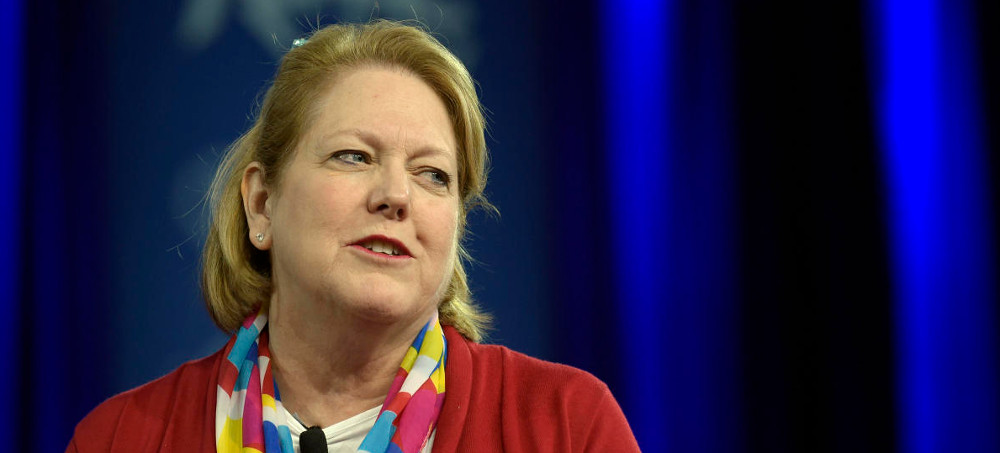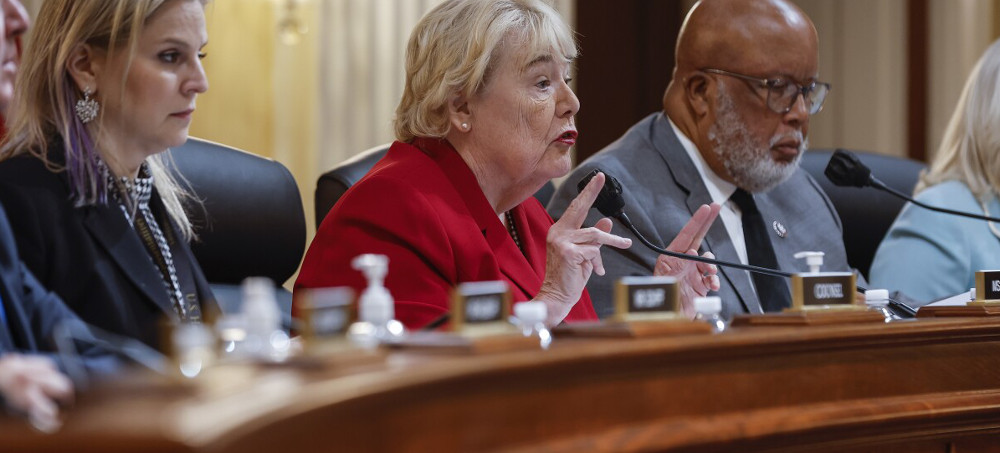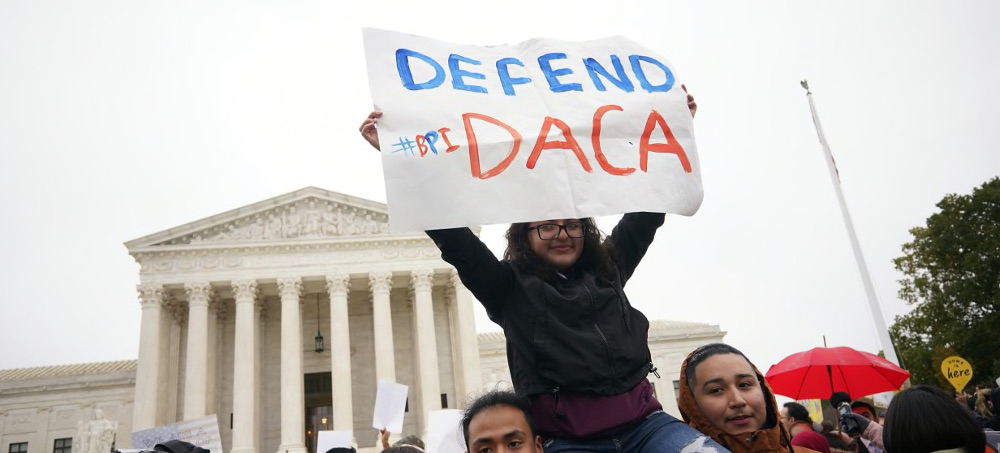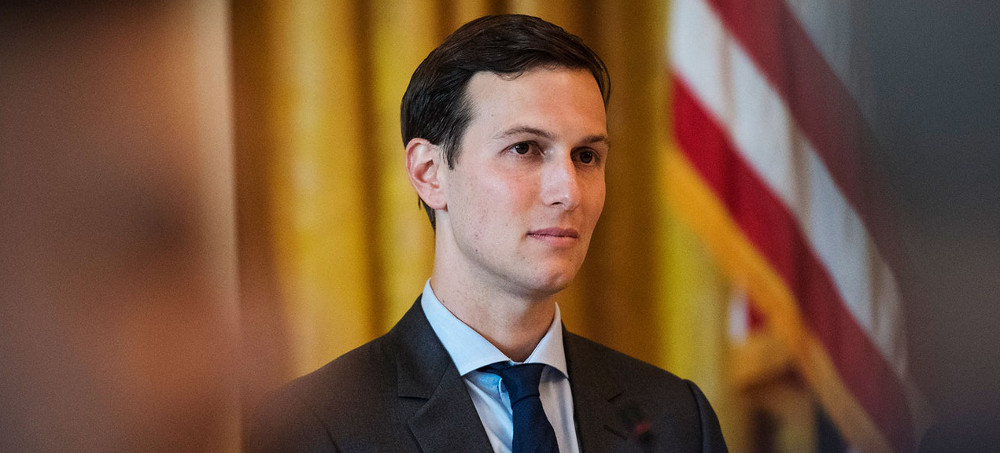Live on the homepage now!
Reader Supported News
Kind of blows a hole in the narrative Kushner (and Ivanka Trump) would have people believe re: them allegedly having nothing to do with Trump’s schemes.
Rolling Stone’s Asawin Suebsaeng and Adam Rawnsley report that in the week following the 2020 election, Jared Kushner “took charge in overseeing the development of plans to keep Trump in office,” according to four people familiar with the matter. While he didn’t go on TV and make crazy allegations like Rudy Giuliani or Sidney Powell, Kushner apparently had the very same goal as the two disgraced lawyers, and “repeatedly” met with the then president and other top advisers to game out potential strategies for “multi-pronged legal battles and a scorched-earth messaging war against the victorious Biden campaign.” Kushner, Suebsaeng and Rawnsley report, told his father-in-law that there could still be a viable path to a second term via a number of states that had already been called for Biden. And despite the recent New York Times headline that he’d “washed” his hands of Trump by November 5, 2020, Kushner reportedly urged his wife’s father to ignore the people who were saying it was over.
“Jared was directly involved,” a former senior Trump aide told Rolling Stone, claiming Kushner was “positioning himself to be the Jim Baker of this fight,” referring to the Republican attorney who headed up George W. Bush’s 2000 legal team. (As Trump adviser Jason Miller told The Daily Beast in November 2020, the president’s son-in-law was “more hardcore in fighting back on this than anybody.” At some point, as Trump began to lean harder into the deranged lies spread by Giuliani and the like, Kushner reportedly told Trump that he would have no part in the effort. But while the Boy Prince of New Jersey would seemingly like people to believe he never had any part in the attempt to keep Trump in power, a source told Rolling Stone that’s not actually true at all. “Jared helped create what then morphed into the Rudy clown show,” one of them said.
And then, of course, there’s this uncomfortable fact:
“If the plan had worked, and if [Mike] Pence had done what the [former] president wanted him to do, Jared would be jumping up and down…or calling reporters to take credit for being the man behind it all [and] the guy who made it all happen,” says a former senior Trump administration official who was present for the tumultuous presidential transition. “Come on. Spare me.”
Kushner did not respond to Rolling Stone’s request for comment.
But are they preparing to indict the former guy? Millions of inquiring minds would like to know
Garland: I can assure that the January 6th prosecutors are watching all the hearings pic.twitter.com/XWq815kdOP
— Acyn (@Acyn) June 13, 2022
From America’s mayor to that apparently drunk guy stumbling around the Oval Office (who the president of the United States was for some reason listening to)
The second January 6 hearing begins with Liz Cheney talking about how Trump listened to advice from "an apparently inebriated Rudy Giuliani" pic.twitter.com/u6WvTPCbHe
— Aaron Rupar (@atrupar) June 13, 2022
 Virginia "Ginni" Thomas, wife of Supreme Court Justice Clarence Thomas, moderates a panel discussion during the 2017 Conservative Political Action Conference in National Harbor, Md. (photo: Chip Somodevilla/Getty)
Virginia "Ginni" Thomas, wife of Supreme Court Justice Clarence Thomas, moderates a panel discussion during the 2017 Conservative Political Action Conference in National Harbor, Md. (photo: Chip Somodevilla/Getty)
The emails show that Thomas’s efforts to overturn the election were more extensive than previously known, two of the people said. The three declined to provide details and spoke on the condition of anonymity to discuss sensitive matters.
The committee’s members and staffers are now discussing whether to spend time during their public hearings exploring Ginni Thomas’s role in the attempt to overturn the outcome of the 2020 election, the three people said. The Washington Post previously reported that the committee had not sought an interview with Thomas and was leaning against pursuing her cooperation with its investigation.
The two people said the emails were among documents obtained by the committee and reviewed recently. Last week, a federal judge ordered Eastman to turn more than 100 documents over to the committee. Eastman had tried to block the release of those and other documents by arguing that they were privileged communications and therefore should be protected.
Thomas also sent messages to President Donald Trump’s White House chief of staff, Mark Meadows, and to Arizona lawmakers, pressing them to help overturn the election, The Post has previously reported.
While Thomas has maintained that she and her husband operate in separate professional lanes, her activities as a conservative political activist have long distinguished her from other spouses of Supreme Court justices. Any new revelations about Thomas’s actions after the 2020 presidential election are likely to further intensify questions about whether Clarence Thomas should recuse himself from cases related to the election and attempts to subvert it.
In January, the Supreme Court rejected a request by Trump to block the release of his White House records to the House committee investigating Jan. 6. Clarence Thomas was the only justice to dissent, siding with Trump.
Ginni Thomas did not immediately respond to requests for comment, nor did Eastman or his lawyer. A spokeswoman for the Supreme Court did not respond to questions for Clarence Thomas.
A Jan. 6 committee spokesman declined to comment.
Eastman, who once served as clerk for Clarence Thomas at the Supreme Court, outlined scenarios for denying Biden the presidency in legal memos and in an Oval Office meeting on Jan. 4 with Trump and Pence, The Post and other outlets have previously reported. Eastman has said that Trump was his client at the time.
Earlier this year, U.S. District Judge David O. Carter ordered Eastman to release numerous documents to the committee, rejecting privilege claims Eastman had asserted. In April and May, Eastman turned over more than 1,000 documents to the committee.
In a 26-page ruling last week, Carter addressed another 599 documents that Eastman sought to shield. Carter ruled that more than 400 of those documents were protected by attorney-client or other privilege and should not be released.
But he ordered the remainder, including correspondence with state legislators and documents related to alleged election fraud and the plan to disrupt the joint session of Congress on Jan. 6, be turned over to the committee last week and early this week.
Carter described some of the documents in more detail than others.
He ordered Eastman to turn over documents regarding three December 2020 meetings of a group that Eastman described as “civic minded citizens of a conservative viewpoint,” including messages from a person Carter described as the group’s “high-profile leader” inviting Eastman to speak at a meeting on Dec. 8, 2020. The meeting agenda indicates that Eastman discussed “State legislative actions that can reverse the media-called election for Joe Biden.”
“The Select Committee has a substantial interest in these three meetings because the presentations furthered a critical objective of the January 6 plan: to have contested states certify alternate slates of electors for President Trump,” Carter wrote.
It is not clear what the group is or who its high-profile leader is.
Carter also ordered the release of part of a Dec. 22 email written by an attorney he did not identify. The attorney encouraged Trump’s legal team not to pursue litigation that might “tank the January 6 strategy” by making clear that Pence did not have the ability to intervene in the counting of electoral votes. “Lawyers are free not to bring cases; they are not free to evade judicial review to overturn a democratic election,” Carter wrote.
And the judge ordered the release of several communications that shared news stories or tweets.
In the weeks after the 2020 election, Ginni Thomas repeatedly pressed Meadows to overturn the outcome, according to text messages obtained by The Post and CBS News. After Jan. 6, she told Meadows in a text that she was “disgusted” with Pence, who had refused to help block the certification of Biden’s electoral college victory. She wrote, “We are living through what feels like the end of America.”
During that same post-election period, Thomas also pressed Republican lawmakers in Arizona to help keep Trump in office by setting aside Biden’s popular-vote win and to “choose” their own electors, The Post has reported, based on documents obtained via a public records request. Thomas sent the emails via FreeRoots, an online platform designed to facilitate sending pre-written messages to multiple elected officials.
In an email on Nov. 9, just days after media organizations called the race in Arizona and nationally for Biden, Thomas sent identical emails to 27 lawmakers in the Arizona House and Senate urging them to “stand strong in the face of political and media pressure.” The email claimed that the responsibility to choose electors — which belongs to voters under Arizona state law — was “yours and yours alone,” and claimed that the legislature had the “power to fight back against fraud” and “ensure that a clean slate of Electors is chosen.”
In a follow-up email to one of the recipients, state Rep. Shawnna Bolick, Thomas described the email as “part of our campaign to help states feel America’s eyes.”
Bolick (R), who provided Thomas with links she could use to report any fraud she had experienced in Arizona, previously told The Post that she received tens of thousands of emails after the election and that she responded to Thomas in the same way she responded to everyone else.
On Dec. 13, the day before presidential electors were scheduled to cast their votes and seal Biden’s victory, Thomas emailed 21 of those lawmakers plus two others. “Before you choose your state’s Electors … consider what will happen to the nation we all love if you don’t stand up and lead,” the email said. It linked to a video of a man urging swing-state lawmakers to “put things right” and “not give in to cowardice.”
The next day, Democratic electors in Arizona cast their votes for Biden. Republican electors met separately and signed a document declaring themselves to be the state’s “duly elected and qualified Electors.” More than a dozen Arizona lawmakers signed on to a letter to Congress for the state’s electoral votes to go to Trump or “be nullified completely until a full forensic audit can be conducted.”
 French president Emmanuel Macron visits Moldova. (photo: AFP)
French president Emmanuel Macron visits Moldova. (photo: AFP)
Moldova, located between Ukraine and EU member Romania, is one of three former Soviet states, along with Georgia and Ukraine itself, that submitted applications to join the EU within days of Russia's Feb. 24 invasion of Ukraine.
It has pressed on with its application amid concerns that it could be drawn into the war, because of instability in its Transdniestria region, run by pro-Russian separatists and occupied by Russian peacekeeping troops on the Ukrainian border.
France, which chairs the European Union until the end of the month, will help reach a consensus among EU members on the issue of Moldova's application to join the bloc at a crucial Council meeting next week, Macron said.
He described the war in Ukraine as "a threat for the stability of the whole region", and said Moldova was "already a country anchored within the European family".
Macron said he wanted to reach a consensus on granting official candidate status to the three countries, adding that Moldova's application should not be separated from that of Ukraine.
Sandu said Moldova wanted to become an EU member "as soon as possible. But we are realists and we understand that we still have a lot to do."
The war in Ukraine complicated Moldova's EU integration, but reforms were bringing Moldova closer to EU standards, she said.
 Rep. Zoe Lofgren, D-Calif., delivers remarks on Monday during a hearing by the House committee investigating the Jan. 6 attack. (photo: Chip Somodevilla/Getty)
Rep. Zoe Lofgren, D-Calif., delivers remarks on Monday during a hearing by the House committee investigating the Jan. 6 attack. (photo: Chip Somodevilla/Getty)
‘The big lie was also the big rip-off,’ says Democrat Zoe Lofgren after January 6 panel appears to make case for fundraising fraud
The hearing, led by Congresswoman Zoe Lofgren, also showed that Trump and the campaign raised millions for the fund and then funneled the money to, among other destinations, the Trump business properties as well as Trump’s own Save America political action committee.
In showing that Trump deceived donors into contributing money to the election defense fund – based on claims about a stolen election that his top advisers told him were nonsense – the panel suggested Trump engaged in potential fraud as well as other violations of federal law.
The select committee said through filings and other evidence, it found the Trump campaign raised $100m in the first week after the election and overall raised about $250m as it asked donors to help fundraise legal challenges to the results.
But the “Official Election Defense Fund”, as it was billed on fundraising emails that were repeatedly sent up until 30 minutes before the Capitol attack, did not formally exist, according to Trump campaign aides Hannah Allred and Gary Coby, who testified to the panel.
“The big lie was also a big ripoff,” Lofgren said of the deception at the hearing, later telling CNN: “He intentionally misled his donors, asked them to donate to a fund that didn’t exist and used the money raised for something other than what it said.”
The Trump campaign was able to fundraise through to January 6 since Trump continued frivolous election litigation past the so-called safe harbor deadline, which is generally accepted as the date by which state-level election challenges – like recounts – must be completed.
The select committee doubled down on establishing Trump’s criminal or corrupt intent in seeking to overturn the 2020 election results by showing he could not have reasonably believed he had defeated Biden when some of his most senior advisers told him otherwise.
Trump was told by every credible adviser, from former attorney general Bill Barr to former Trump campaign chair Bill Stepien to former Trump White House lawyer Eric Herschmann to former Fox News political editor Chris Stirewalt, that the election was not stolen.
The admissions by Trump’s top officials are significant as they could put federal prosecutors one step closer to being able to charge Trump with obstructing an official proceeding or defrauding the United States on the basis of election fraud claims he knew were false.
The select committee in short made the case that if Trump is ever charged, he could not use the defense that he acted in potential criminal ways because he earnestly believed there was election fraud because he was told otherwise – the doctrine of “wilful blindness”.
At the second hearing, the select committee also revealed a new piece of information: that Trump falsely declared victory on election night at the White House at the insistence of his attorney Rudy Giuliani, and against the advice of every other presidential adviser.
The former president had infamously claimed on election night that “frankly, we did win this election” even though no winner had yet been announced, as a number of the most closely contested states were still counting millions of mail-in ballots.
How Trump came to falsely declare victory on election night was not exactly clear, until the select committee on Tuesday played a video of the top Trump White House aide Jason Miller testifying that Giuliani recommended to Trump they just pretend that they had won.
“They’re stealing it from us,” Giuliani told the then president when he found him at the White House, according to Miller, who also testified that the former New York mayor seemed drunk. “Where do all the votes come from? We need to go say that we won.”
 Immigration rights activists take part in a rally in front of the Supreme Court, on Nov. 12, 2019. (photo: Mandel Ngan/Getty)
Immigration rights activists take part in a rally in front of the Supreme Court, on Nov. 12, 2019. (photo: Mandel Ngan/Getty)
The 2012 Obama-era policy opened job and educational pathways to thousands of undocumented and mainly Latino young Americans. Ten years later, its future is tenuous.
Mendoza Arana's dad was a chemical engineer in Peru and her mother was a pre-school teacher; both were pastors. But when they moved to the U.S., the couple, who were undocumented, worked at a warehouse, later switching to housekeeping.
For Mendoza Arana, her prospects changed when in 2012 President Barack Obama implemented the Deferred Action for Childhood Arrivals program, DACA, allowing hundreds of thousands of young undocumented immigrants who were largely raised in the U.S. to apply to work and study in the U.S. without fear of being deported.
“I just remember all of us were instantly sobbing. We knew, especially my sister and I, our lives would be changing,” Mendoza Arana, 32, originally from Lima, Peru, told NBC News.
There is mounting evidence that, in its decade of existence, DACA has done on a smaller scale what the GI Bill did for returning veterans — it elevated a group of people into the middle class, thus conferring advantages to parents, children, siblings and communities.
“The 10-year, long view of DACA is really the story of young people taking advantage of a policy to find on-ramps to education, job level programs and certificates, who were able to use that early entry to get their foot in the door in jobs and careers as stepping stones to really launch themselves,” said Roberto Gonzales, professor of sociology and education at the University of Pennsylvania who has been tracking the lives of more than 500 DACA recipients over the last decade after studying thousands of undocumented young Americans.
“It’s indisputably the most successful policy of immigrant integration since the 1980s — it is really the American Dream put into reality at a scale of hundreds of thousands,” Gonzales said.
Even so, DACA remains in jeopardy, with a Texas Republican-led challenge of the policy now in the 5th Circuit Court of Appeals and a court decision in that case blocking new DACA applicants from getting approved.
The program already is not available for many. To be eligible, undocumented young people had to have arrived in the country before June 15, 2007. This will be the first year that an overwhelming majority of the estimated 100,000 undocumented high school graduates are ineligible for DACA, according to FWD.us, a progressive immigration lobbying group.
For Mendoza Arana, a series of firsts followed her DACA approval. She got her first job at 23; previously, she had only been able to work in internships. For the first time, she had medical benefits through her job, and saw a dentist for the first time in over a decade.
And she has a driver’s license. “It’s been 10 years and to this day I look at it and I’m like, I can’t believe I am holding this in my hands,” Mendoza Arana said.
Some have argued that advocates and media take a rosy look at DACA focusing on the success stories. But along with Gonzales’ findings of improved lives among the recipients he’s tracked, a trio of economists found direct impact on high school retention.
“We find that DACA significantly increased high school attendance and high school graduation rates,” the economists stated in a 2020 study published in the American Economic Journal.
Before DACA, Gonzales detailed in his book “Lives in Limbo” that undocumented young people's lack of legal status precluded any real educational and career advancement.
“Prior to DACA, going to college was a big risk,” Gonzales said, “not worth it for those undocumented young people who could see no link between education and the types of jobs they could obtain.”
“With DACA, it’s allowed them to obtain employment that matches their credentials in the field of their choice, and that is huge," he said. “They’re living solidly middle-class lifestyles and have grown into their status, it’s really remarkable,” Gonzales said.
In a 2017 analysis of the DACA population, the Migration Policy Institute found that DACA recipients were almost as likely as U.S. adults in the 15-32 age group to be enrolled in college — 18 percent and 20 percent respectively.
Also, 40 percent of recipients were enrolled in secondary education, but not college, and 20 percent were still in secondary school.
For many families, it’s meant breaking the cycle of poverty and opening up new opportunities.
After the program was implemented, the health care field has seen an uptick in Latinos — and it became evident during Covid.
Gonzales gave the example of several DACA recipients he's interviewed over the years. With DACA, they started out as Certified Nursing Assistants, doing basic yet necessary hospital work — “you’re changing bed pans". They obtained their associate’s degrees while they worked, then got a bachelor’s and then became registered nurses; some went on to get their master’s degrees.
DACA recipients earning north of $75,000 a year are helping parents financially, putting their children in quality day care programs, moving to better neighborhoods and becoming more active in their communities, the research has shown.
The gains don't apply just to those who went to college. For those who were older and already in the workforce, DACA made it possible for them to seek professional licenses, leading to better jobs.
Alma Benito, 22, was working in the fields of the Coachella Valley alongside her parents when Obama implemented DACA. Up to that point, “there weren’t many opportunities. I couldn’t just apply to a job. I didn’t have a Social Security number,” Benito said.
After getting DACA in 2015, she found better work and attended California State University, Bakersfield. When the pandemic forced her to pause that and return home to help her family, she was able to borrow $1,000 to help cover the family’s costs.
She is a staff member at the TODEC Legal Center, a Latino legal advocacy group.
When Benito’s sister became eligible for DACA, the Trump administration stopped taking new applications. Unable to get a job good enough to pay for college, her sister still works in the fields with her parents.
For Abel Cruz Flores, migrating to Parkland, Oregon, as a 15-year-old from the remote town of La Parota in Mexico, was a culture shock. He attended River Valley High School and dropped out after two weeks because of the language barrier. He returned to working in the fields picking pears, cherries and blueberries.
A year later, with some nudging from his sister, he re-enrolled in high school. Last summer, he earned his doctorate from Georgetown University and is now a university professor.
As one of the early recipients of DACA, he sought out graduate programs and landed at the University of Arizona’s Hispanic linguistics program, where he received a stipend, health insurance, had his tuition paid for and was paid to teach.
“DACA is the fundamental key to open the door to achieve those academic merits for higher salary,” said Cruz Flores, an assistant professor in the Department of Modern Languages and Literatures at Santa Clara University in California.
Massachusetts State Rep. Danillo Sena, a Democrat, recalls going to Washington, D.C., as a high school student to advocate for the DREAM Act, legislation aimed at providing a path to legal status for young immigrants.
He was undocumented, having moved to the U.S. from Timbaúba, Brazil at 14 with his family. Obama used executive authority to create DACA after Congress’ repeated failure to pass the DREAM Act, or versions of it.
Sena secured his DACA benefit soon after it was announced. He completed his bachelor’s degree studies in political science in 2019 at University of Massachusetts, Amherst. He worked for six years for Massachusetts state Sen. James Eldridge, a Democrat. Along the way, in 2018, sponsored by his spouse, he became a U.S. citizen and in June 2020, won a special election to the Massachusetts Legislature.
Now 35, he is seeking re-election.
DACA “certainly has helped me to be where I am today, for sure,” Sena said. “But just giving people DACA status is not enough. There needs to be a pathway with citizenship."
DACA was always meant to be temporary, with the goal of congressional legislation setting DACA recipients and other eligible undocumented Americans on a path to legal status.
“Ultimately, as great as this policy is, it’s by nature temporary and partial and not meant to be longstanding policy,” Gonzales said. “Many programs tied to DACA status, if it’s ultimately revoked, they go away.”
In the last 10 years, previous bipartisan plans for immigration legislation have been shelved, with Republicans eschewing attempts at immigrant integration and focusing on border control.
DACA recipients live with two realities — the regular renewal of DACA and the possibility that DACA is taken from them, which could even mean having to move to another country to start over.
“What does it mean to have hundreds of thousands in perpetual limbo submitting documents and paying fees to submit their status and continue to prove they're worthy Americans?” Gonzales said. “They’ve proven it in ways no one else has had to."
 A delegation from Saudi Arabia examines models of military equipment at the Dubai Airshow 2021, in the UAE on November 14, 2021. (photo: Andrea DiCenzo/Getty)
A delegation from Saudi Arabia examines models of military equipment at the Dubai Airshow 2021, in the UAE on November 14, 2021. (photo: Andrea DiCenzo/Getty)
Oversight Needed to Protect Yemeni Civilians, Hold Saudi Arabia and UAE Accountable
Human Rights Watch and others have warned for years that US-made weapons sold to Saudi Arabia and the UAE may be being used to commit war crimes in Yemen and that US officials could be implicated. We called for a suspension of these sales. Successive administrations argued they were tracking civilian casualties in Yemen and helping the coalition mitigate them through better targeting.
But the GAO report, obtained by Human Rights Watch, indicates that they’re likely not doing enough. Despite credible reports from the United Nations and civil society monitors detailing laws-of-war violations and likely war crimes, neither the State nor Defense Departments could, according to the report, “provide evidence” that they had “investigated any incidents of potential unauthorized use of equipment transferred to Saudi Arabia or UAE.”
That’s why congressional oversight remains essential. In fact, what we know from the GAO report comes largely because of Congress’ reporting requirements.
What more should Congress do?
First, press the GAO to publish the full report. US officials are reportedly trying to redact portions before it’s published, which could obscure important findings.
Second, urge the State Department to implement the report’s recommendations including the call for the Bureau of Political-Military Affairs to develop “specific guidance for investigating any indications that U.S.-origin defense articles have been used in Yemen by Saudi Arabia or UAE” in ways that violate international law.
Third, pass the Protection of Civilians in Military Operations Act, introduced in May. Among other things, the legislation would establish a hub within the Pentagon for supporting the US government on the issue of civilian harm.
The revelations in the GAO report come as President Joe Biden plans to travel to Saudi Arabia. On the campaign trail, Biden promised not to check US “values at the door to sell arms or buy oil.” In office, he has lobbied Congress to approve further arms sales to the kingdom.
Without being able to effectively monitor how US-made weapons are being used by the Saudis and their allies, or if US training and support is mitigating civilian harm, the US risks more than its values. It also risks complicity in the crimes themselves.
 The relatively arid desert Southwest is viewed at 33,000 feet on May 19 near Moab, Utah. The Colorado River, flowing from Colorado's Rocky Mountain through Utah, Arizona, Nevada and California is dependent on winter snowfall in the Rockies. (photo: George Rose/Getty)
The relatively arid desert Southwest is viewed at 33,000 feet on May 19 near Moab, Utah. The Colorado River, flowing from Colorado's Rocky Mountain through Utah, Arizona, Nevada and California is dependent on winter snowfall in the Rockies. (photo: George Rose/Getty)
Bureau of Reclamation Commissioner Camille Calimlim Touton told the Senate Energy and Natural Resources Committee maintaining “critical levels” at the largest reservoirs in the United States — Lake Mead and Lake Powell — will require large reductions in water deliveries.
“A warmer, drier West is what we are seeing today,” she said at a hearing. “And the challenges we are seeing today are unlike anything we have seen in our history.”
Colorado, New Mexico, Utah, Wyoming, Arizona, California, and Nevada all receive water from the Colorado River and next year will see a decrease of between 2 million and 4 million acre-feet of water due to the ongoing drought that has gripped most of the Western U.S. (An acre-foot is the amount of water needed to cover one acre of land in one-foot-deep water.) Current allotments of water from the Colorado range from 300,000 acre-feet for Nevada to 4.4 million acre-feet for California.
“What has been a slow-motion train wreck for 20 years is accelerating, and the moment of reckoning is near,” John Entsminger, general manager of the Southern Nevada Water Authority, told the Senate hearing. “We are 150 feet from 25 million Americans losing access to the Colorado River, and the rate of decline is accelerating.”
The West has been suffering through an acute drought since 2020, part of a megadrought that began in 2000. The last 20 years have been the driest two decades in the last 1,200 years. This year is so far the driest on record in California. Scientists attribute these conditions to climate change, which causes more water evaporation due to warmer temperatures.
“As a climate scientist, I’ve watched how climate change is making drought conditions increasingly worse — particularly in the western and central U.S.,” wrote Imtiaz Rangwala, research scientist in climate at the Cooperative Institute for Research in Environmental Sciences at the University of Colorado Boulder, in May. “The last two years have been more than 2 degrees Fahrenheit (1.1 Celsius) warmer than normal in these regions. Large swaths of the Southwest have been even hotter, with temperatures more than 3 F (1.7 C) higher.”
Western states have already been undertaking emergency measures to deal with the water scarcity. Seven months ago, California, Arizona and Nevada signed an agreement to take less water from Lake Mead, and six weeks ago the Department of Interior announced it is withholding some water from Lake Powell. Otherwise, DOI feared, the reservoir could drop so low that Glen Canyon Dam would not be able to generate electricity.
Last year, for the first time ever, the federal government declared a shortage on the river, which led to reductions in water deliveries to Arizona and Nevada. Some farmers in Arizona have had to leave some fields unplanted as a result.
Local governments and water utilities have been imposing restrictions on water usage. On June 1, the Metropolitan Water District of Southern California instituted limits on outdoor watering; typically it will be restricted to one or two days per week. But the water shortage persists.
“Despite those efforts and a previous deal among the states to share in the shortages, the two reservoirs stand at or near record-low levels,” the Los Angeles Times reported. “Lake Mead near Las Vegas has dropped to 28% of its full capacity, while Lake Powell on the Utah-Arizona border is now just 27% full.”
Touton told the Senate committee that her agency is negotiating with the seven states that depend on the Colorado River to develop a plan for apportioning the water supply reductions in the next two months. In all, nearly 40 million people rely on water from the river.
Sen. Martin Heinrich, D-N.M., attributed the gathering crisis to a lack of coordinated action to mitigate climate change.
“It’s frankly a direct result of the lack of action on climate that we have seen for more than 20 years,” Heinrich said.
Follow us on facebook and twitter!
PO Box 2043 / Citrus Heights, CA 95611



No comments:
Post a Comment
Note: Only a member of this blog may post a comment.